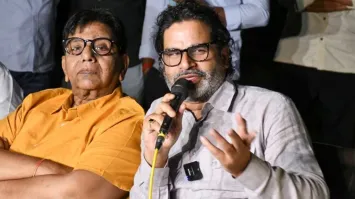Marking a major milestone in its political journey, Prashant Kishor’s Jan Suraaj movement has announced its first list of 51 candidates for the upcoming Bihar assembly elections. The move officially signals Kishor’s transition from political strategist to full-fledged political contender, as his organization seeks to present itself as a credible alternative to the traditional power blocs led by the BJP-JDU alliance and the RJD-Congress combine.
The list, released at a press conference in Patna, reflects Jan Suraaj’s grassroots-centric approach. It includes a mix of professionals, social workers, teachers, farmers, youth leaders, and local activists — many of whom are contesting elections for the first time. Kishor emphasized that these candidates were selected not on the basis of caste, money, or muscle power, but through a rigorous process evaluating their social credibility, community engagement, and clean public image.
“Bihar does not need rulers; it needs representatives who understand people’s pain and potential,” Kishor declared while unveiling the list. He reiterated that Jan Suraaj aims to rebuild politics in Bihar on the foundation of suraaj — good governance — rather than on identity-based equations that have dominated the state for decades.
Among the 51 candidates are several faces from non-political backgrounds — doctors, teachers, social entrepreneurs, and youth icons from rural districts. The list also features a notable representation of women and individuals from marginalized communities, underscoring Kishor’s attempt to make Bihar’s political field more inclusive and participatory. “These are people who have worked for years in their areas, not those who remember the public only during elections,” he said.
Observers view this first candidate list as a litmus test for Kishor’s much-discussed “bottom-up” model of political organization. Since launching Jan Suraaj Yatra in 2022, Kishor has traveled through hundreds of villages across Bihar, interacting directly with citizens and building local networks of volunteers. The release of the candidate list thus marks the culmination of months of groundwork and people’s consultations across districts like Muzaffarpur, West Champaran, Gopalganj, Nalanda, and Begusarai.
Political analysts suggest that with this move, Prashant Kishor has effectively entered the electoral battlefield, moving beyond the realm of advisory politics where he once shaped campaigns for national leaders including Narendra Modi, Nitish Kumar, and Mamata Banerjee. His decision to contest independently, without aligning with any major party, signals his confidence in the strength of his people-driven political model.
However, the road ahead is far from easy. Bihar’s political landscape remains deeply polarized, with powerful caste loyalties and established party structures. Critics argue that while Jan Suraaj has generated enthusiasm among educated youth and urban voters, translating that goodwill into votes in rural constituencies will be a formidable challenge. The absence of a traditional political machinery and financial muscle could also test the organizational resilience of Kishor’s team.
Despite the odds, Kishor appears undeterred. He believes Bihar’s electorate is ready for a new experiment — one that focuses on education, employment, agriculture, and corruption-free governance rather than on legacy politics. “The people of Bihar have tried everyone for decades. If they believe that change is possible, Jan Suraaj will be their platform,” he asserted confidently.
The release of the first list is expected to be followed by additional rounds of candidate announcements in the coming weeks, as the party finalizes names for all 243 constituencies. With this step, Prashant Kishor has officially transformed Jan Suraaj from a campaign of ideas into an electoral movement — setting the stage for what could become one of the most intriguing political contests in Bihar’s modern history.
As the battle lines for the Bihar assembly polls begin to take shape, all eyes will be on whether Kishor’s “citizen candidates” can disrupt the entrenched political order and turn his vision of a new Bihar into a tangible political reality.



